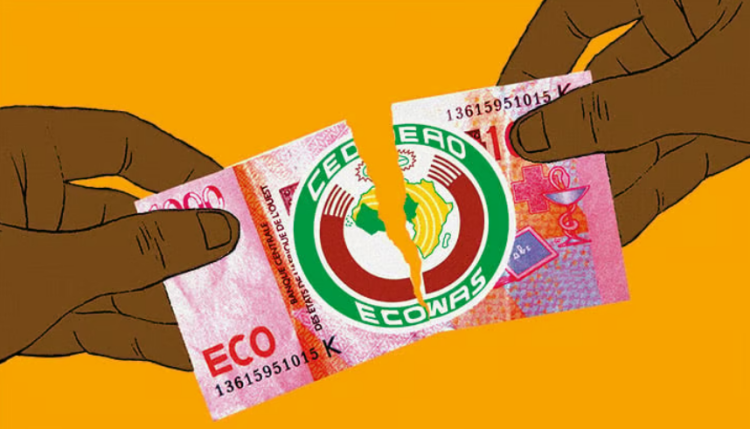Gambiaj.com – (BANJUL, The Gambia) – The Economic Community of West African States (ECOWAS) is seriously considering a significant pause in its long-awaited single currency initiative, the ECO, after years of challenges in actualizing the plan. The currency, initially slated for launch in 2020, faced multiple delays, including the impact of the COVID-19 pandemic, which pushed back the timeline to 2022-2026 to stabilize regional economies.
A feasible launch date of 2027 had been previously considered, but that timeline now appears uncertain. This was disclosed by Mr. Edwin Melvin Snowe Junior, Co-chair of the ECOWAS joint committees on Social Affairs, Gender and Women Empowerment, Legal Affairs and Human Rights, Political Affairs, Peace, Security, and the African Peer Review Mechanism (MAEP), during a weekend event in The Gambia.
The ECO initiative, first proposed in the late 1990s and gaining traction with the establishment of the West African Monetary Zone (WAMZ) in 2000, was envisioned as a cornerstone for economic growth and integration across the 15 ECOWAS member states. The single currency was expected to simplify transactions, reduce the complexities of currency exchange, and foster a more integrated and prosperous West African region.
However, political challenges have significantly impeded progress. “The single currency is a work in progress. It has its political implications,” said Snowe Junior. “There has been a lot of political situations that have to be addressed. It’s not that we don’t have good economists or analysts who can understand and implement it.”
Snowe Junior highlighted that the primary challenges stem from integrating the currency systems of the region’s Francophone and Anglophone countries. The French-speaking nations, which use the CFA Franc with reserves in France, are tied to the BCEAO bank, creating complications for a unified currency.
To address these challenges, ECOWAS is now considering a two-currency system as an interim solution. “We propose that Nigeria, along with Ghana, Liberia, Gambia, and Sierra Leone—the five English-speaking countries—could have one currency for now,” Snowe Junior suggested. “Then, the Francophone countries could have another currency. Over the years, these two currencies could eventually migrate into a single currency.”
However, the current political instability in the region, particularly following recent coup d’états in three member states, has stalled further consideration of this proposal. Snowe Junior assured that once the region’s security situation stabilizes, the focus would return to advancing the single currency initiative.
The future of the ECO remains uncertain, with political will and regional stability being critical factors for its eventual realization.










